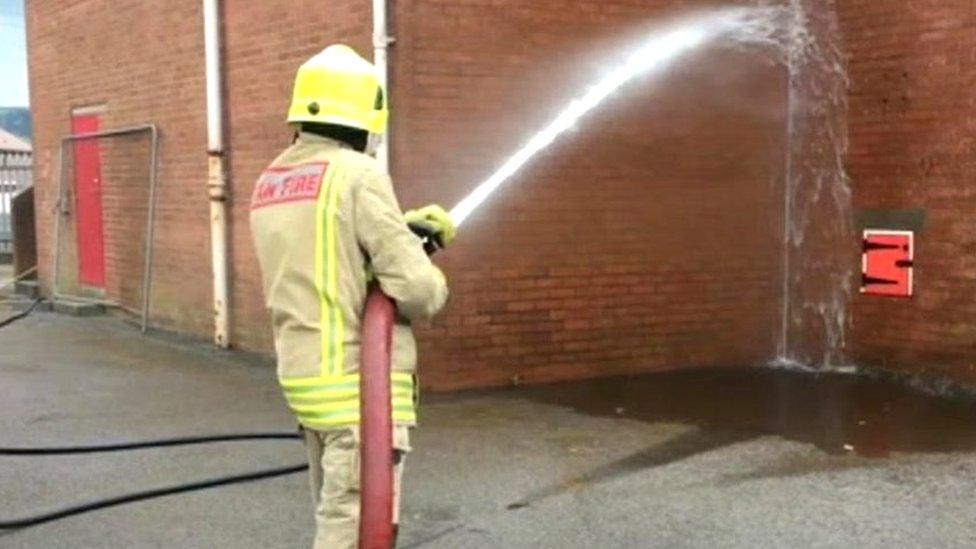Rural fire service unsustainable, says Mid and West Wales chief
- Published
A fire chief believes there are not enough retained firefighters.
A lack of on-call retained firefighters in rural areas is a "significant concern", a chief officer has warned.
With 125 vacancies, Mid and West Wales Fire and Rescue head Roger Thomas said the situation was "unsustainable".
He has asked councils to raise their levy to the service by up to 13% to help improve pay for retained firefighters.
The Welsh government said it needed creative thinking to employ more retained firefighters.
Retained firefighters work other jobs but respond to emergencies on an on-call basis, crewing 43 of 56 stations in the Mid and West Fire Service area.
The fire service area covers Carmarthenshire, Pembrokeshire, Ceredigion, Neath Port Talbot, Swansea and Powys.
Mr Thomas said that availability of retained firefighters had steadily declined from about 95% in 2015 to 83%.
He has asked local authorities to increase their levy to the fire service by up to 13% to try to improve pay for retained fire fighters.
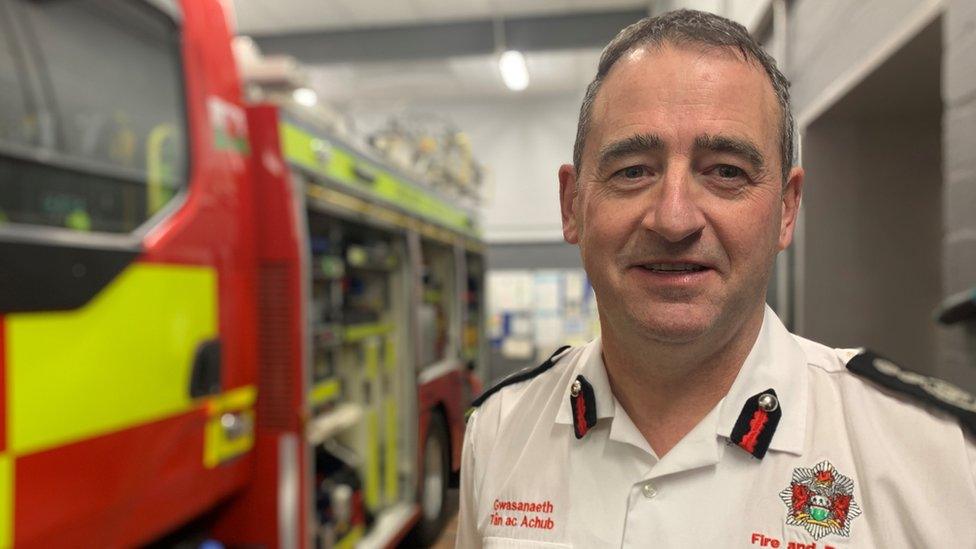
Mid and West Wales Fire and Rescue chief Roger Thomas says the availability of retained firefighters has steadily declined from 2015
"We're seeing younger generations perhaps not willing to do, or commit to the significant amount of hours that we ask them to do," he said.
"For instance, a 100% contract on the retained would be 120 hours a week, while a 75% contract would be around 90 to 95 hours a week."
He said the younger generation are wanting to main a work/life balance.
"I think Covid has accelerated that situation whereby people have revaluated their life positions, and we're seeing people not willing to commit to such an extensive commitment that effects their lives."
'Not working'
Retained firefighters are paid a few thousand pounds a year to be on-call, which varies according to their role and experience, they are then paid per call-out.
They have to commit to be available for between 90 and 120 hours a week, which can mean leaving their paid employment at a moment's notice, and getting to the station in under 10 minutes.
Crymych Fire Station in Pembrokeshire has traditionally been well crewed in the past, but is now struggling to attract new recruits.
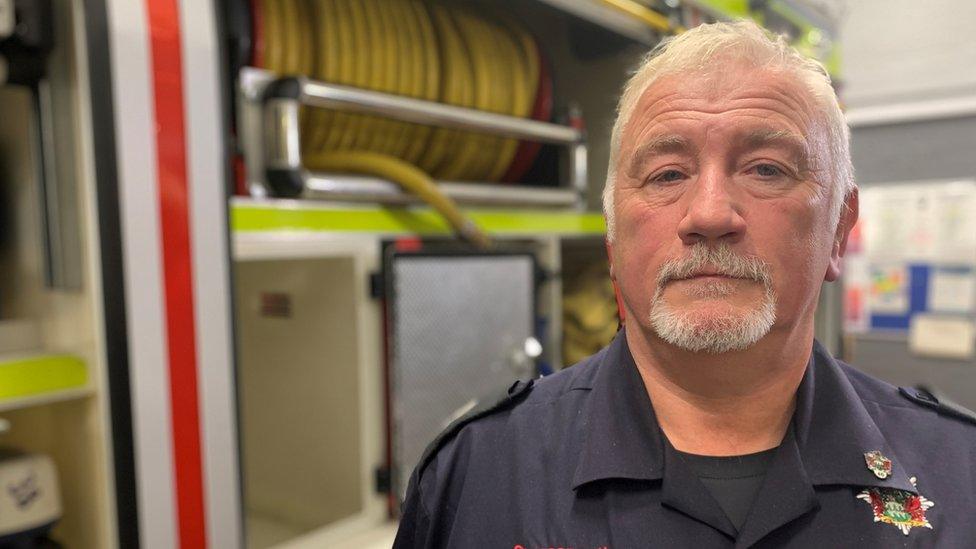
Euros Edwards sas something has to change, as it is not working at the moment and maybe incentives need to be looked at
Watch manager Euros Edwards has given 43 years of service to the fire service, but said he was concerned about the current situation.
The station also provides a co-responder service for medical emergencies. Mr Edwards said Crymych needed with an extra four retained firefighters.
"Something has got to happen. It's not working at the moment, maybe we've got to look at incentives," he said.
"Not just money - but fewer hours to cover - to incorporate family life with work life and the fire service. Something needs to change because it's not sustainable at the moment."
His brother, Dylan Edwards, has served for 34 years, and is worried about the instances when the fire appliance is unable to respond to emergencies because of a lack of firefighters.
"We need to be more flexible, so people can reduce their hours, so that we can retain them within the service; retain that experience and knowledge to serve their communities," he said.
"I think the financial element needs to be there. I've met with representatives from our fire authority and local treasurers and the local authorities and they've been extremely supportive."
'Lifeblood of the service'
Councillor John Davies, a member of Mid and West Fire Authority called for a national review of pay and conditions for retained firefighters.
"The numbers are dangerously low," said Mr Davies.
"Retained firefighters are the lifeblood of the service in rural parts of Wales. We have asked the six collective authorities for a 13% increase which will only go part of the way to plug this gap.
"It's a gap no community can afford. It's so critical that the resilience is maintained.
"There are times when fire stations will not be able to respond to people's hour of need and as an elected member I find that totally unacceptable and actually it does keep you awake at night."
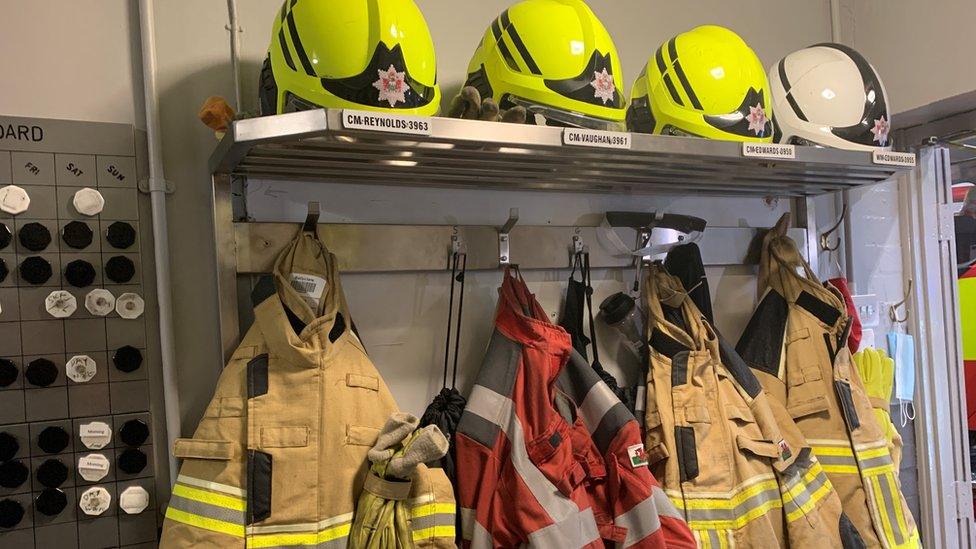
Retained firefighters have to commit to leaving their paid employment at a moment's notice when they get an emergency call
The Welsh government said the service had much to be proud of, as it continued to succeed in reducing the incidence and severity of fire.
"We recognise this has an impact on the recruitment and retention of on-call firefighters, especially in rural areas.
"This is compounded by long-term changes in rural employment patterns which mean there are fewer people able to serve as retained firefighters than there used to be.
"Solving the problem needs creative thinking and we will discuss this with fire service employers and unions at the social partnership forum."
- Published2 December 2022
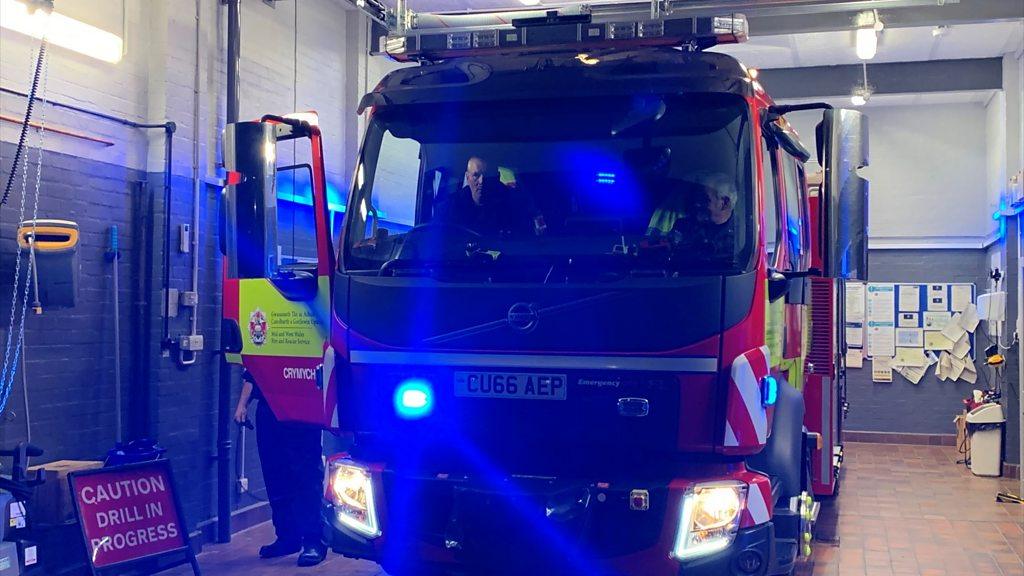
- Published2 February 2020
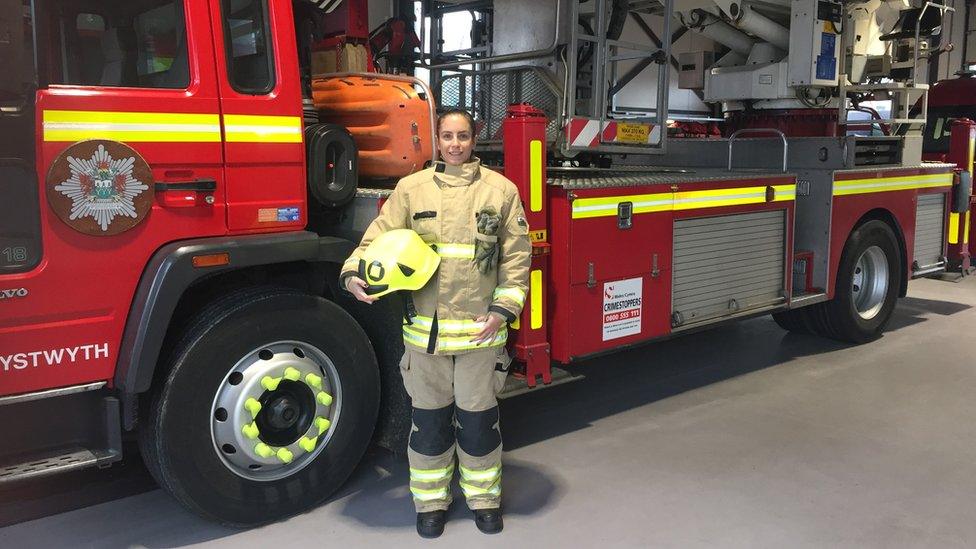
- Published13 February 2019
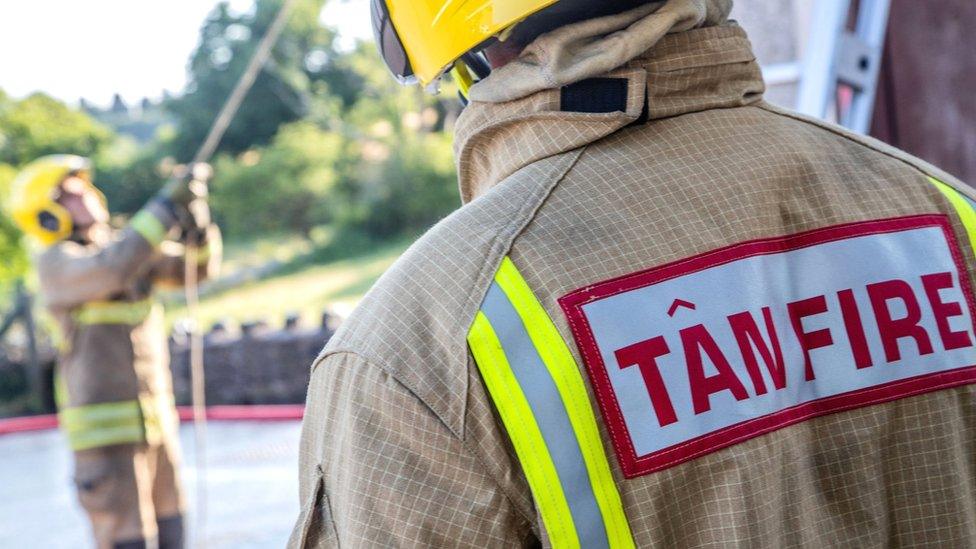
- Published5 September 2019
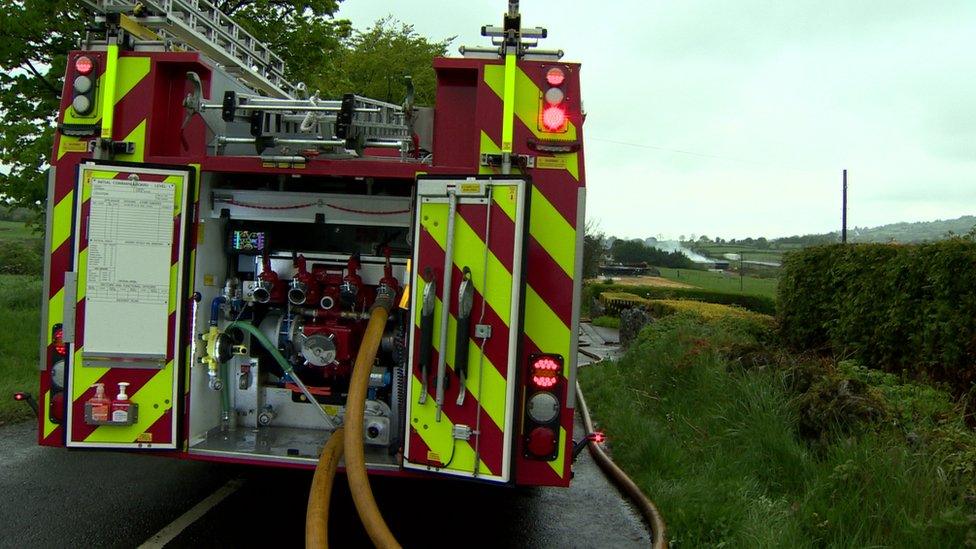
- Published2 October 2017

- Published27 September 2017
